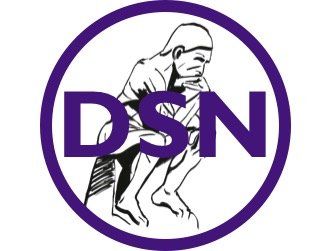How to claim Employment & Support AllowanceEmployment & Support Allowance has replaced Incapacity Benefit for new claimants. It is the appropriate benefit to claim when your sick pay entitlement is exhausted. ESA may be contributory (dependent upon your NI contribution record) or income-based if you don’t meet the NI contribution criterion - the income of your household i.e. partner’s pay is taken into account. It is worth noting at this stage that income protection insurance payouts do not affect your entitlement to contributory ESA but would do so for income-based. ESA entitlement is also further divided into Work Related Activity (WRAG) or Support groups. Claimants in WRAG are required to attend work-focused interviews with the Jobcentre and possibly other activities. Claimants in the Support group are not obliged to do this. A point worth noting is that your entitlement to contributory ESA now expires after 1 year if you are in the WRAG group (since the Welfare Reform Act 2012). This time limit does not apply to contributory ESA claimants in the Support group.
Initial application
You normally make the initial benefit application over the telephone (during a very long phone call) and are then sent a print out filled in by the benefit office worker. This process can introduce error so, I would suggest downloading the ESA1 form and filling it in yourself, if possible, to minimise corrections.
Click
HERE
for the ESA1 form.
Work Capability Assessment
Having made your application for ESA, there will then be a 13 week period when you receive the lower ‘assessment rate’ of ESA. The assessment is the Work Capability Assessment (WCA) this is a form combined with, in most cases, a face-to-face medical. The ‘Work Capability’ considered in this assessment is your ability to do any work, not whether you are fit to do your normal job. During this period, you will receive an ESA50 form. You will be told that you have a month to complete and return the form - during which you will continue to receive the ‘assessment rate’ of ESA. The form is long and can be quite taxing to complete. It is essential to describe your situation as completely as possible on the form. If possible, ask a close friend or relative to check it for you in order to make sure that you have accurately described your situation. The form is divided into physical and mental descriptors. After recent changes, you cannot accrue points from both sections i.e. the side effects of a mental health treatment cannot gain you points from the physical descriptors section.
Click
HERE
for the ESA50 form
N.B. You may wish to request (as is your entitlement) an audio recording of your face to face medical. Government ministers have previously stated that this should be available if requested before the interview but claimants have, at times, been refused this option due to lack of equipment.
Scoring Criteria
The scoring from the ESA50 and medical is as per the attached link
Click
HERE
for the ESA 214 Guide to WCA
The scoring guide on pages 17-24 shows how points are allocated. In order to achieve the Work Related Activity Group (WRAG) of ESA, you must score 15 or more points from the ESA50. You need to tailor your completion of the form to scoring the points dependent upon your function, not your diagnosis. If you meet any of the Schedule 3 descriptors as in the link below, you will be placed in the Support group for ESA payment and receive a higher rate of benefit.
Click
HERE
for Schedule 3 descriptors.
The DWP will only request a report from your own doctors if they suspect that you are so disabled that you do not need to attend a face-to-face medical. If possible, you should therefore request a medical report from your doctor/s to accompany the completed ESA50 form. In my opinion, the DWP decision makers are likely to rely upon the evidence from a hospital consultant’s report rather than a General Practitioner (GP) report. Also, many doctors are not well informed about the ESA process and will not necessarily expect what type of ‘descriptors’ the decision will be based on. The DWP decision turns on, not your diagnosis, but which tasks the DWP deems you to be capable of performing, so, I would suggest providing your doctor with a completed copy of your ESA50 in order to inform their report.
At this point, I would like to draw your attention to regulations 29 & 35 from the Employment & Support Allowance regulations 2008 as below:
29 (1) A claimant who does not have limited capability for work as determined in accordance with the limited capability for work assessment (i.e. does not score 15 points or more) is to be treated as having limited capability for work if paragraph (2) applies to the claimant.
(2) This paragraph applies if………
(b) the claimant suffers from some specific disease or bodily or mental disablement and, by reasons of such disease or disablement, there would be a substantial risk to the mental or physical health of any person if the claimant were found not to have limited capability for work.
35 A claimant who does not have limited capability for work-related activity as determined in accordance with regulation 34(1) is to be treated as having limited capability for work-related activity if--
(a) the claimant suffers from some specific disease or bodily or mental disablement; and
(b) by reasons of such disease or disablement, there would be a substantial risk to the mental or physical health of any person if the claimant were found not to have limited capability for work-related activity.
Rules 29 and 35 can be extremely relevant for individuals who are both motivated and articulate and therefore struggle to score 15 points from the WCA. I would therefore suggest providing your doctor with a copy of the above regulations so that, if they feel that your situation falls into the above categories, they can tailor their report to cover this area.
Face-to-face medical
Most claimants will be called for a medical administered by healthcare workers (doctors, nurses, physios) employed by an external contractor. Claimants with a mental health problem are usually assessed by a doctor. The assessment takes the form of the healthcare worker completing a computer-administered form that can feel very impersonal for the claimant. There is a limited amount of free text for the assessor to express an opinion. There is a relatively new role of Mental Function Champion (MFC), who is a healthcare worker with particular expertise in mental health. It is possible for any assessor to ask for advice from the local MFC. A claimant may ask the allocated assessor to ask for advice from the MFC if they feel that this is indicated. The completed form is then returned to the DWP where a (non medical) decision maker decides if you are entitled to ESA. The decision maker is obliged to telephone you prior to making their decision in order for you to add other information - such as if the claimant reported a recent self harm or suicide attempt.
Decision
It is likely that your claim for ESA for a mental health problem will be turned down at this stage. Do not despair. It is advisable to now request a print out of your face to face assessment record from the DWP and also to appeal the decision within 1 month of the decision. The first stage in this process is a mandatory reconsideration by the DWP. There is no time limit on how long this process should take. During the mandatory reconsideration, if you have not been awarded sufficient points to be placed in the WRAG, you will not receive ESA and would be advised to claim Jobseekers Allowance (JSA). Claiming JSA entitles the DWP to require specific work seeking activity from the claimant. If you do not feel that you are fit for the work seeking activity suggested, you can request for this to be reduced. Between an unsuccessful mandatory reconsideration and an appeal, you can claim ESA. Approximately 40% of appeals are successful so appealing is well worth doing.
There is a statutory process for appealing as per the relevant directgov web page: click
HERE
Points to note:
You should include in the appeal form that you wish to continue to claim ESA. If your ESA claim is turned down at appeal, the DWP does not currently have the power to reclaim the ESA paid while the appeal was being considered.
If you attend the appeal in person, you are much more likely to be successful.
If possible, tailor your appeal to address specific points of the assessment in order to maximise your chances of success. Don’t just plead your diagnosis - it is unlikely to work.
You should include with the appeal form, medical reports or other supporting evidence for why you think you should be awarded the benefit.
Appeals
Tribunals, appointed by an independent body, consider ESA appeals. The panel will consist of a judge and a doctor. They will consider your ESA50, the face-to-face assessment and any other supporting evidence in order to see whether your situation meets the criteria for ESA entitlement. You are entitled to take a supporter with you to the appeal. This is routinely done. The tribunal will come to a decision on the day and tell you of their decision either at the time or by post after the hearing. The panel may or may not advise when you should be called for reassessment by the DWP.
Future WCA assessments
The appeal process is often so delayed that you can find yourself being reassessed for ESA shortly after winning your appeal. The DWP is entitled to call you for reassessment whenever they choose and does not need to follow the advice of an appeal tribunal on when you should be reassessed.
Complaints
It is quite common for procedural errors to arise during the ESA process and I have personally had great difficulty in resolving anything over the phone. I have recently discovered that if you complain in writing to the DWP about your benefit handling, this entitles you to the name of a specific manager who will handle the complaint and, more importantly, a phone number.
Updated 2016
The above advice is offered in good faith but it is the reader’s responsibility to assess whether it is appropriate to follow the advice in their own situation. Neither the Doctors' Support Network nor the author can be held responsible for any consequences of following this advice.


